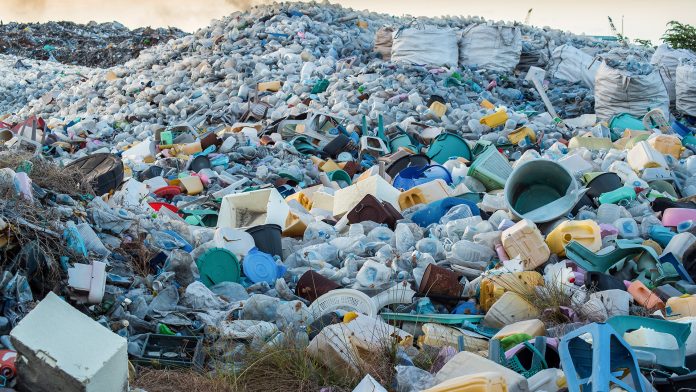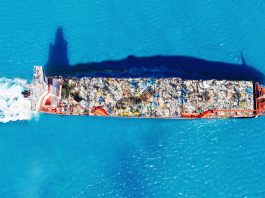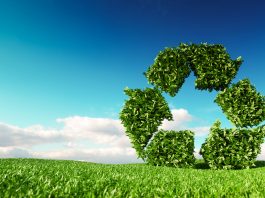Chris Williams, CEO of UK cleantech ISB Global, warns that plastic recycling alone is not enough for the world to kick its harmful addiction to plastic.
An incendiary new report published this month by the US-based Center for Climate Integrity entitled ‘The Fraud of Plastic Recycling’ contends that the oil industry and the plastics manufacturers have falsely promoted recycling as the answer to the problem of plastic waste problem for more than half a century despite knowing that plastic recycling “is not technically or economically viable at scale”, according to the authors.
We like to think that recycling our plastic solves plastic waste, but this isn’t the case. A 2021 paper by Professor Christos Tsinopoulos, Dr Riccardo Mogre and Onur Ağca at Durham University Business School found that only 6% of the nine billion plastic items produced since the 1950s have been recycled. More than half of these items have gone to landfill as waste.
According to the Organisation for Economic Co-operation and Development (OECD), only 9% of plastic waste was recycled globally in 2019. This is currently projected to increase to 17% in 2060.
What’s clear is that we are still a long way off from ending plastic waste pollution. Solving the world’s plastic waste problem needs a coordinated effort by national and international governments that includes investment and R&D into developing new biodegradable plastic alternatives.
Regulations and standards set by governments for businesses and consumers are also crucial to driving positive change. Together, this combination will deliver the all-important long-term changes necessary to reduce the volume of plastic waste polluting both land-based and marine ecosystems.
How big is the plastic pollution problem?
Plastic is convenient because it’s cheap to produce and widely available, and its properties and versatility mean it’s widely used for various purposes. But plastic is also a problem – how we produce it, how much we use it, and especially how we dispose of it afterwards. Recycling alone isn’t enough to solve the global plastic waste problem.
Plastic takes significant natural resources and takes hundreds of years to break down. In doing so, it leeches harmful chemicals into the air, soil, and water supplies. Plastic waste has even found its way into food chains, so particles are routinely found in wildlife and humans.
Change the plastic lifecycle
The challenge facing us is to find a solution to the plastic waste problem that changes from a linear to a circular approach where materials are reused, recycled, composted or biodegraded to produce little to no waste and avoid creating landfills.
Kicking our addiction to plastic isn’t going to be easy and will present challenges that require innovative approaches.
In Europe and elsewhere, plastic recycling is widely accepted. Years of work by governments and environmental groups have changed our throwaway habits so that many people habitually ‘recycle’ their plastic waste.

However, many plastics are unsuitable for continual recycling and can only be recycled two or three times before they become unusable and must be disposed of in another way. And all the while, we continue to manufacture vast amounts of new plastic.
The problem with recycling begins after we put our unwanted plastics in the recycling bin. Currently, the recycling ecosystem in the UK is so complex that the rules on what can and cannot be recycled vary depending on the street, town or region where you live.
In addition, each year, thousands of tonnes of supposedly “recycled” plastic either end up being incinerated or shipped to other countries, where we lose track of what happens to it. This plastic might still end up in landfill or being burned.
The other major cause of concern is the plastic waste in the world’s oceans. It’s well-documented how plastic harms marine wildlife and pollutes undersea ecosystems. UNEP estimates that the world’s oceans contain anywhere from 75 to 199 million tonnes of plastic. It predicts the amount of plastic waste entering seas and waterways could nearly triple from 9-14 million tonnes per year in 2016 to a projected 23-37 million tonnes per year by 2040.
Plans to encourage more careful sorting of recyclables are steps in the right direction; however, a comprehensive solution depends on making recycling more accessible and consistent through shared standards across all regions.
A call for action to everyone
To solve the global plastic pollution crisis, we need nothing less than a systemic transformation in the way we make, use, and then dispose of plastic.
For consumers, this means the following:
- Significantly reducing single-use plastics wherever possible
- Reusing existing plastics wherever possible to extend their lifespan
- Being smart about recycling and knowing what plastic types can and can’t be recycled
For businesses, this means the following:
- A shift to alternative packaging that is sustainable, compostable, or biodegradable
- Review and assess both supply and sales chains for more sustainable approaches
- Encourage customers to choose plastic-free options
- Measure plastic use to benchmark progress in reducing its use
- Encourage plastic-free habits in the workplace
For governments, it means:
- Facing down lobbying efforts from both the petrochemical sector and the plastic industry
- Putting in place comprehensive legislation on plastic issues – including banning single-use plastics such as cutlery and plastic bags and mandating plastic-free packaging and plastic alternatives among business
- Taking the lead on using recycled and recyclable materials in public infrastructure and other projects
- Imposing levies and fines to encourage plastic reduction
- Working with business and academia to provide investment for the development of bio-based plastic substitutes
- Working collaboratively with other countries to promote more coordinated production, reuse and safe disposal of plastic products
For the world to kick its plastic addiction, governments and businesses must work together at a national and international level to clean up existing plastic production and disposal processes and, second, invest in, develop, and adopt at-scale biodegradable alternatives to plastic.
Concrete policy instruments and measures must also be agreed to to stop plastic waste poisoning the land and oceans and move to a healthier, more sustainable, low-waste circular economy and way of life.





